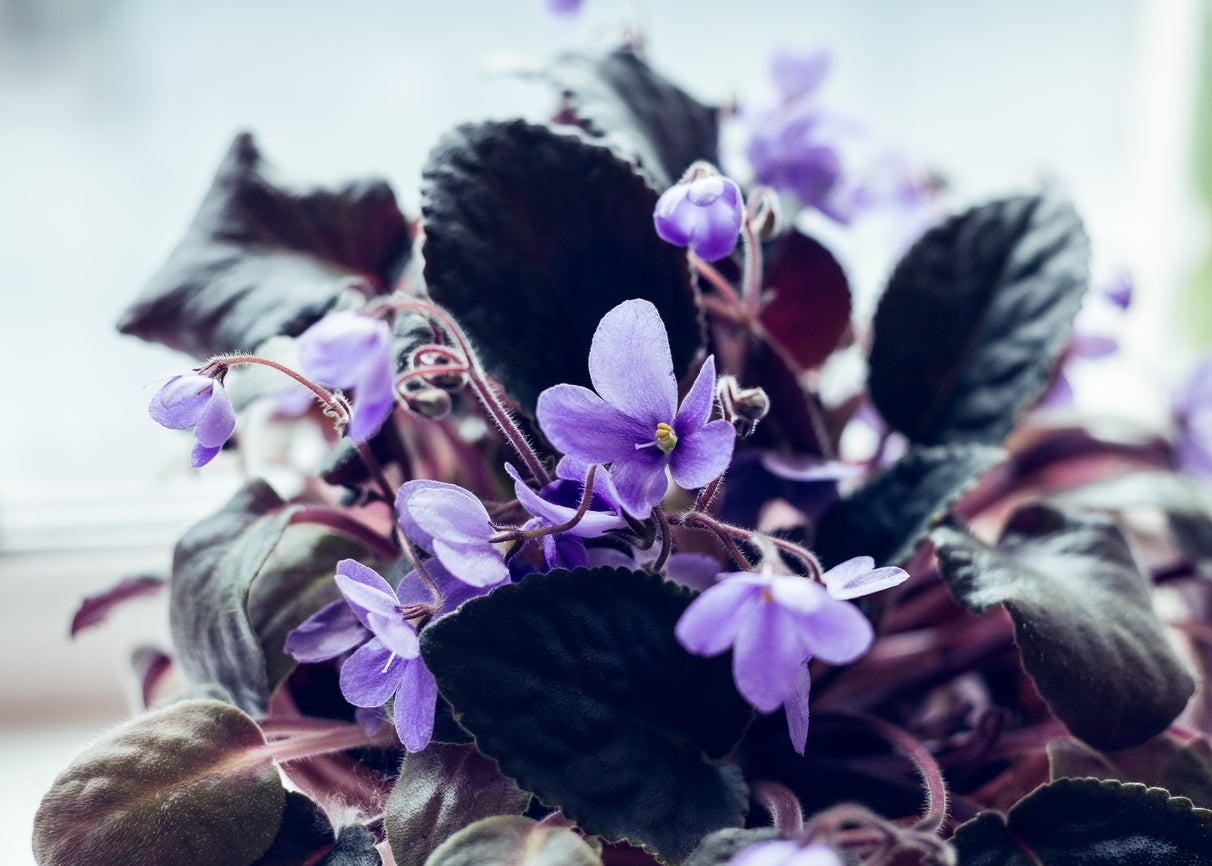Fertilizing African Violets – Learn How To Feed African Violet Plants


African violets are one of the most charming blooming houseplants available. They have a sweet, old-fashioned innocence that appeals to everyone. There are just a few straightforward rules for growing African violets. Water and light needs are two of these, but just as important is how to feed African violet plants. The type of food is crucial when feeding African violets because some sources say nutrients can actually harm the plant.
Do African Violets Need Fertilizer?
African violets require fairly low maintenance. They do need proper exposure, heat, and keeping water off those leaves, but they usually keep producing those sweet flowers much of the year. To keep your violet in good health, it needs to be fed. When, how and with what are questions we will be answering.
Almost all plants need proper macro- and micro-nutrients as well as soluble vitamins, and African violets are no exception. African violet fertilizer needs to be water soluble and in a ratio especially developed for the plant’s needs.
The best time for fertilizing African violets is in spring when the plant is actively growing. Avoid feeding African violets in winter. Some growers say not to fertilize the plants during bloom, while others tout the process. However, considering that blooming deprives the plant of energy, it would seem logical that the nutrients it uses need to be put back into soil for plant uptake.
About African Violet Fertilizer
Not all plant foods are alike. African violets need a certain percentage of nitrogen, phosphorus and potassium, plus trace minerals. The recommended ratio for African violets is 14-12-14. There are commercial formulas available specifically for fertilizing African violets, but many of these use urea as the nitrogen source. In certain conditions, urea can burn the plant’s roots.
A formula that uses ammonium nitrate may be a little bit more costly but is gentler on the roots. In instances where the plant is not blooming well, use a formula with a higher amount of phosphorus.
How to Feed African Violet Plants
These little plants need feeding every 4 to 6 weeks during their growing period. Prior to feeding, moisten the soil well. Use a liquid or soluble powder formula that will provide instant delivery. If you are using a concentrated liquid, follow manufacturer’s instructions for dilution.
Sign up for the Gardening Know How newsletter today and receive a free copy of our e-book "How to Grow Delicious Tomatoes".
Municipal water supplies can contain chlorine and should be allowed to sit for 24 hours before preparing African violet fertilizer. Excess chlorine is toxic to the plants. For a more organic route, you can also use worm castings, diluted compost tea or fish emulsion. These are primarily nitrogen, however, so add a little bat guano, which is available to purchase.
To avoid the build-up of toxic salts deposited in soil, flush the container at least four times per year and wipe the crusted salts from around the top edge.

Bonnie Grant is a professional landscaper with a Certification in Urban Gardening. She has been gardening and writing for 15 years. A former professional chef, she has a passion for edible landscaping.